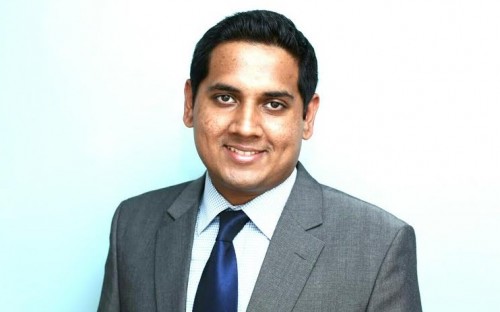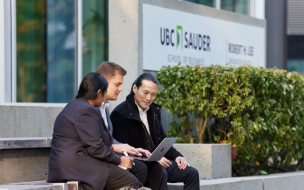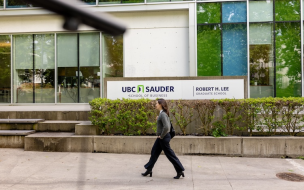In 2015, domestic traffic soared by more than 20% while international flights increased by over 7%, according to a KPMG study. By 2020, India will become the world’s third largest aviation market after the US and China. Its airports could carry as many as 370 million passengers per year.
Atishay Jain is a high-flying MBA student at the George Washington University School of Business, determined to break into the world’s fastest growing aviation market. First, he wants experience working for a major commercial airline. Then, he wants to start his own.
Prior to his MBA, Atishay worked for his family business exporting paper and in auditing at KPMG in Mumbai, before getting his first taste of the aviation industry in a business development role at Jet Airways’ frequent flier program JetPrivilege.
Competition in his native Indian market is fierce and international airlines are getting involved. Jet Airways partnered with the UAE’s Etihad Airways to secure over 20% of the Indian aviation market and keep up with its big rival airlines, Air India and IndiGo.
Yet Atishay is confident that an MBA in the US, is a one-way ticket to success.
What are your career plans?
I am looking at a career shift into the aviation industry. I want to work in the strategy division of a commercial airline, in a role involving network planning, revenue management and operations.
In the long run, I want to be an entrepreneur in the industry and start my own airline. India would be my initial target market because of the increase in demand, especially in second and third tier cities.
What challenges do you envisage you will face?
The competition has been increasing drastically and regulation requirements are strong.
As one of the main determinants of profit for an airline, the cost of fuel also poses a big challenge.
How was your experience working at KPMG?
It was a transformative experience. And I could see the change in myself, going from an undergraduate student to a working professional.
I also got to meet and network with leading executives through the auditing of top tier banks and financial service organizations.
Why did you decide to pursue an MBA?
I wanted to take my career to the next level; to switch industries, to develop my managerial skills and to enhance my thought process.
I felt that I needed to meet people from more industrially as well as geographically diverse backgrounds. For that, the MBA was ideal.
What was the hardest thing about the MBA application process?
The waiting period after applying to schools and waiting to hear from them. You feel like you’re in no man's land as you’re in the middle of leaving your job and entering a new phase of life.
Why did you choose to study at GWSB in particular?
GWSB is a premier school not only in the United States but across the globe.
Studying in Washington DC gives you more chance to network with future business leaders and GWSB is strategically located at the nexus of business and policy; just a few blocks away from the White House, the World Bank and the IMF.
How have you profited from the MBA experience so far?
Compared to my past education, the MBA has been a different experience altogether. Its holistic approach to understanding business management is changing my way of thinking.
RECAPTHA :
3a
c3
74
b9








